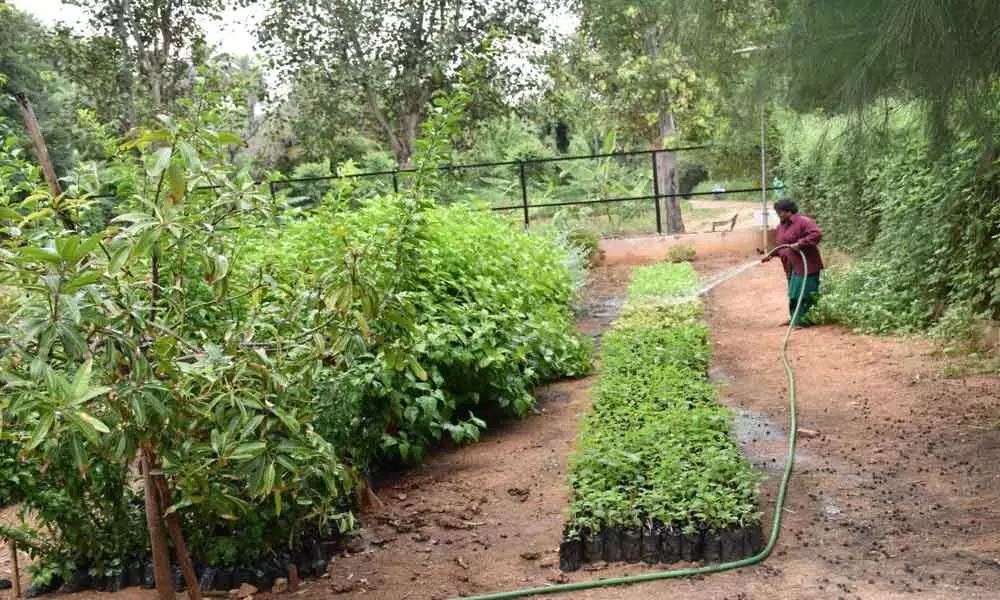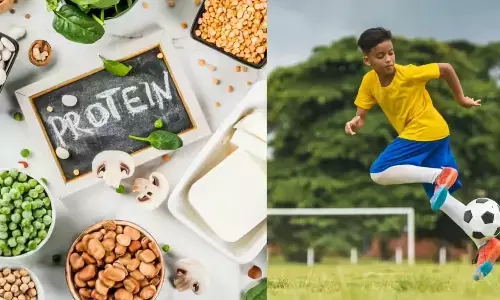Organic veggies for zoo inmates

The authorities of Nehru Zoological Park (NZP) are growing veggies and varieties of grass for the herbivorous inmates in order to reduce dependency on non-organic food from outside.
Bahadurpura: The authorities of Nehru Zoological Park (NZP) are growing veggies and varieties of grass for the herbivorous inmates in order to reduce dependency on non-organic food from outside.
Seizing the opportunity of having vast open green areas under the zoo park, spread over 380 acres, the authorities have started growing green leafs as well as three varieties of grass in seven acres to ensure herbivorous animals are served healthier staple food.
"Self-sustainable efforts can help us cut short reliance on the non-organic feed being brought from outside that is largely grown up commercially unmindful of harmful effects of chemically induced synthetic fertilisers on the human as well as the wildlife.
To address this sort of issues, we have decided to grow green leaves turning the vastly available open areas under the zoo park into sustainable resource efficient fields," said the Curator, N Kshitija, who has been giving a fillip to self-sustained initiatives, since taking the charge.
Explaining the approach, she said, "Presently, we are growing veggies like Spinach (Palak), Coriander (Kothimeer), Peppermint leafs (Pudina), Fenugreek (Methi), Curry leafs (Curry Patta), Banana leafs, Mulberries and Papaya. This is besides raising sugar cane as well as three varieties of grass such as Napier, Co 4 and Para Grass in fodder plot under Zoo Park in this endeavor."
To tackle the issue of polluted water from Mir Alam being used to raise green leaves, she said, "an artificial pond with water treatment facility is set up in the zoo park to reduce the amount of contamination. The facility would treat the water before redirecting it towards the fields.
The goal is to produce purified water for harvesting green veggies. With this we have managed to reduce pollution level by 60 percent which by and large became productive to irrigate the crops."
The idea pushed by the curator is now yielding a good result with authorities increasingly becoming less dependent on non-organic food brought from outside to feed the inmates that often comes with many health issues, said the PRO (NZP) Hafeez Mohd. Haneefullah.
"We are growing green leaves by using fertilisers made up of dunk of herbivorous animals such as elephant, Nilgai (Blue Bull), bison and deer etc. As the compost is easily available in the zoo itself, we do not have to buy it from outside," said Lakshman Nayak, the supervisor vested with the responsibility of growing veggies, variety of grass and raising nurseries.
"We are raising sugar cane in 1.5 acres of land. With this we have managed to provide fully organic sugar cane more than thrice a day to the elephants and Rhinoceros.
Similarly growing banana leafs in 1.5 acres of area while half acres of land earmarked for green veggies such as Spinach, Coriander, Peppermint leafs, Fenugreek and Curry leaf. We are also growing fruits like Mulberries and Papaya of good quality to add more nutrition in the regular diet of the wild inmates," he elaborated.
The authorities, in the recent past have also experiment the idea of rearing sheep within their boundaries to feed the carnivorous animals with complete un-organic food free from all sort of harmful medicinal effect.
The idea is to protect the carnivorous animals, especially vultures, from the effects of diclofenac medicine that is administered to rearing sheep, to protect them from all sort of diseases. In the past, big birds suffered and even perished due to deadly chemical induced in the meat.











